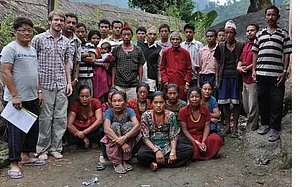
Minimizing failure in rural energy projects
Eric Gold, internship and thesis, Nepal
It is clear from an investigation of development efforts that progress has been made in terms of application and study of the socio--‐technical environment. Research has shown an improved understanding of key functions for success and the innate learning processes that take place. However, implementations of development projects through known development approaches fall short of acceptable expectations and are considered to have serious shortcomings. While this result may be acceptable for well--‐resourced stakeholders, this is not acceptable for vulnerable participants who suffer the full impact and consequences of failure.
This report provides an investigation into the recurring weaknesses in applied approaches, as well as examining the potential means for improvement. It is proposed that aspects from the field of applied ethics, particularly responsibility, can be of great value. With this intent, utilization of a Responsible Innovation approach would minimize implementation failure in social contexts of rural energy projects for development.
To support this theory, an extensive literature review to investigate current application and innovation studies was made. This provided key insights into the theoretical framework of development and how this links with practice. Interviews with experts in policy, economics, and development strategies were made to uncover remaining weaknesses and elaborate on the potential of responsibility in development. Lastly, case studies were analyzed from the perspective of Responsible Innovation, including personal field experience in Nepal that instigated this theme.
Through investigative research, Responsible Innovation was acknowledged as a novel and necessary approach to embrace the socio--‐technical and socio--‐ethical contexts. It has been mentioned as an essential element in development due to its inherent dimensions in anticipation, reflection, inclusion, and responsiveness, all while stressing sustainability in terms of people, planet and profit. Utilizing a Responsible Innovation approach is expected to promote moral design when experimenting in society and should be incorporated into pro--‐poor energy development projects of the future.


